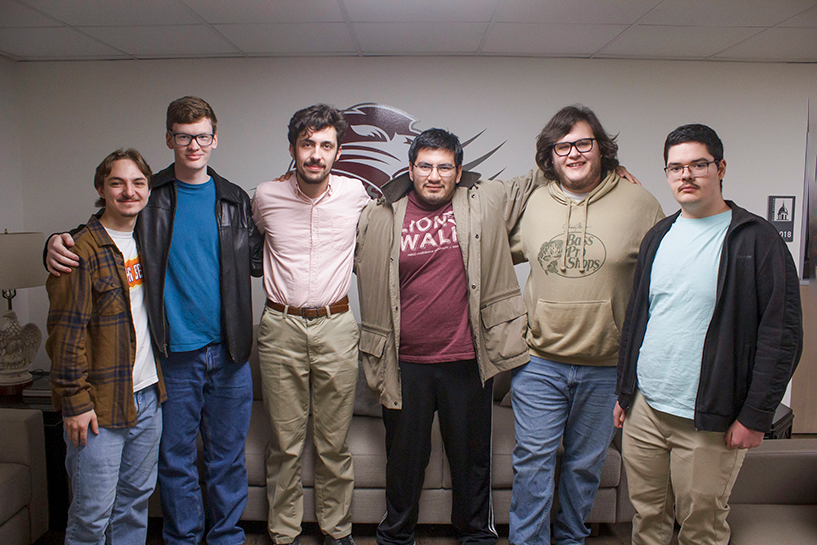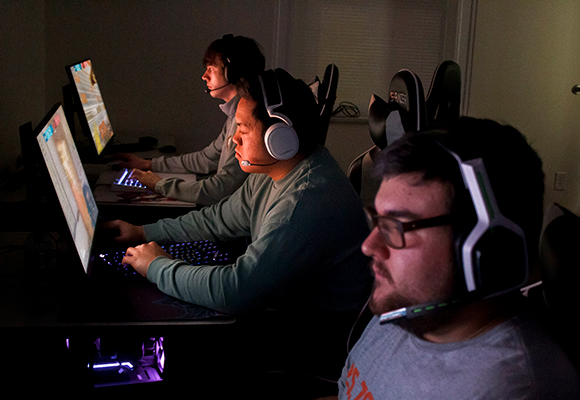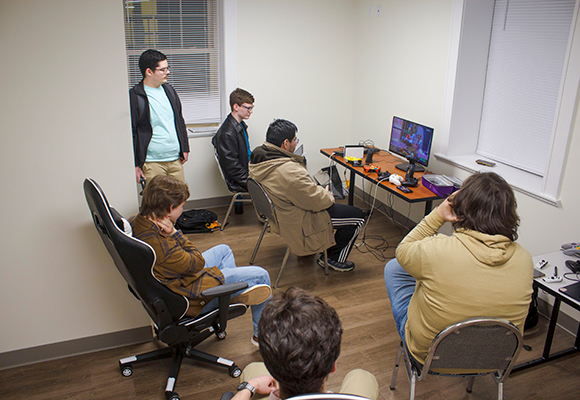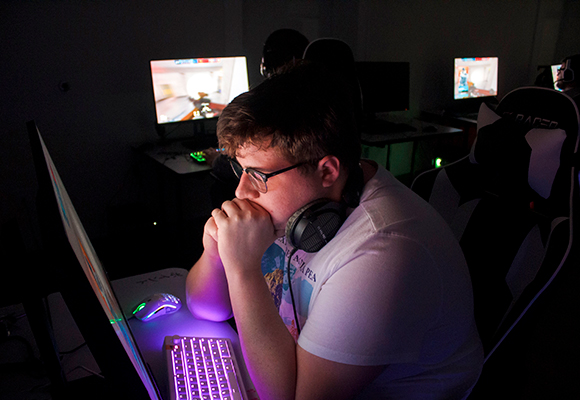
Freed-Hardeman’s Esports Team Takes on the ECAC Season With Excitement and Passion
For most students on Freed-Hardeman’s campus, day-to-day college life is fairly ordinary. However, members of the university’s Esports team have turned their classrooms and textbooks into bunkers and battlegrounds through the world of video games. The team is now embarking on their spring season as part of the Esports Eastern College Athletic Conference.
The team is relatively new, debuting the Fall 2024 semester. Despite being such a recent addition to Freed-Hardeman’s programs, the team has already faced D1 schools like Purdue and Baylor. Coached by Greg Maxwell, the team is looking forward to more challenges to come.
“It’s really exciting to be able to say we’ve competed against the widest range of competition out of any of the sports,” Maxwell said.

The Hall-Roland basement serves as the Esports arena
The team has recently moved into the basement of Hall-Roland, where they use six desktop computers to both practice and compete. Maxwell boasts a number of 24 team members between the six games they have participated in. The games offered in the program are Overwatch, Super Smash Bros, Madden, Fortnite, Rocket League and Valorant with the hope of more to come in the future. The rosters for these games are constantly changing during this pivotal time mid-season.
“I worked with Coach Maxwell on this,” Austin Applegate, senior computer science major and Esports player at Freed-Hardeman, said. “Before we even played our first game, we created a whole list of different roles everyone could play, and we saw what worked. But then as time went on, we had more practices and kind of figured out what worked even better.”
Applegate explained that in the beginning, team members would rotate through the different roles in the games, seeing which roles aligned with each individual’s strengths. Now, the players have settled into their favorite roles and have begun honing those skills more intensely. Applegate also noted that the team practices using both quick-play and competition matches.

Team members participate in the first match of the spring semester
“When you play quick-play, you’re working on individual mechanics,” Applegate said. “You try out random things and see what happens. But when we’re doing competition games, we have to continually communicate with each other. I think both are very beneficial.”

Game play requires focus and concentration
The team operates under a very democratic system. There is no team captain or lead players since everyone has a valuable opinion. Applegate explained that Maxwell’s opinion is the final word but that players are welcome to bring their ideas and present them for the team to use.
Luke Woodfin, a senior, is very pleased with the current state of the team. “The biggest success from practices and tournaments has been identifying everyone’s strengths,” Woodfin said. “Team compositions have been moved around to figure out the best roles that each person can play and it has led us to do better in our games.”
While the program is still in its early stages, the team has already managed to see high involvement, gain closer ties to one another and boast multiple victories. The team is optimistic about the future and, according to Woodfin, the program is hoping to welcome even more students in the upcoming semester.